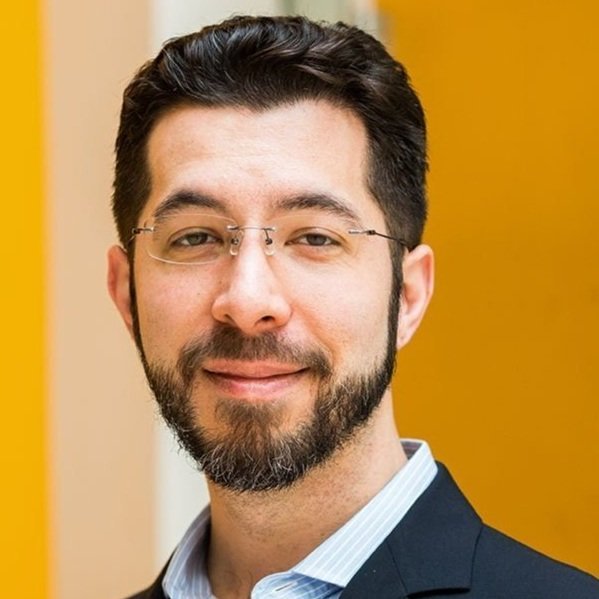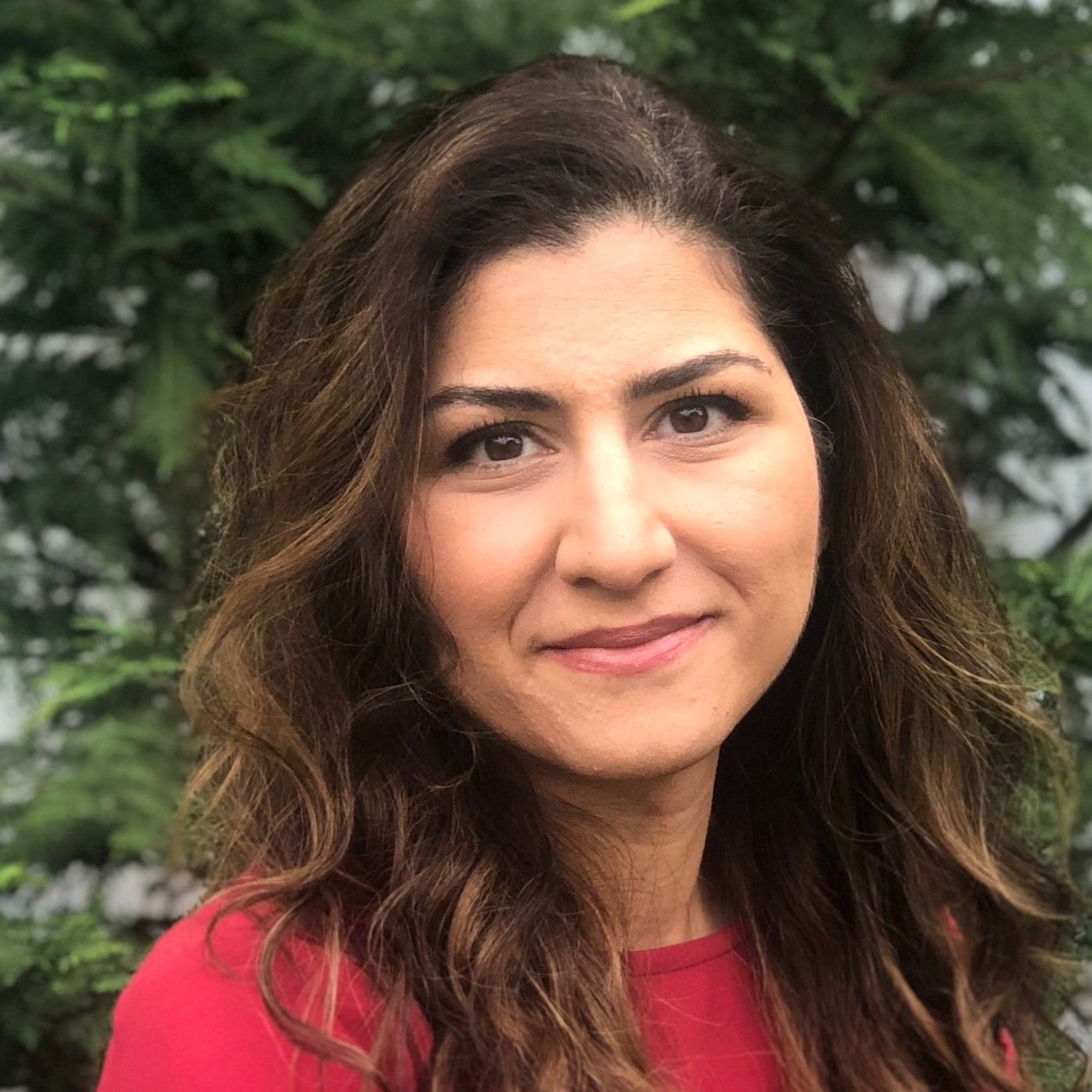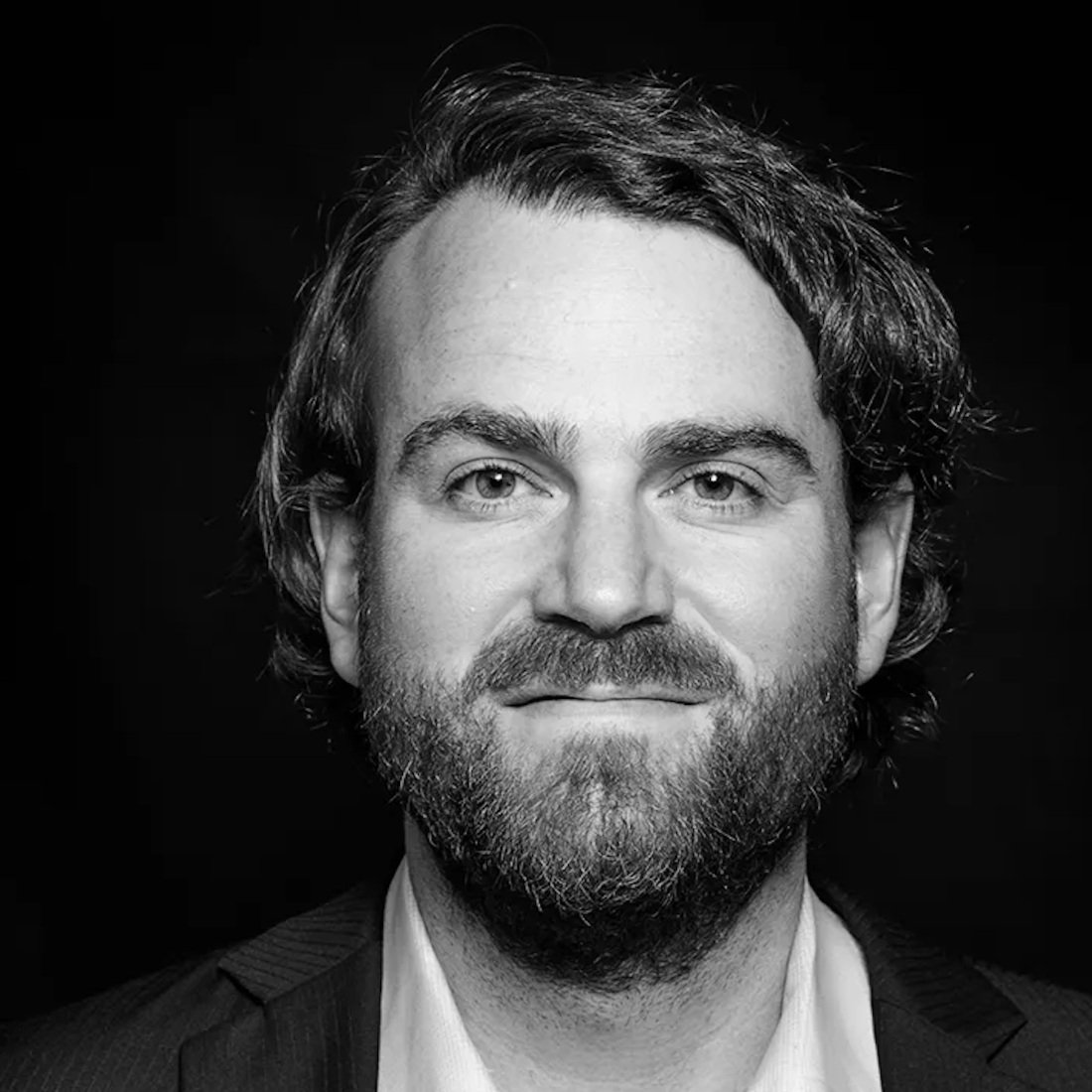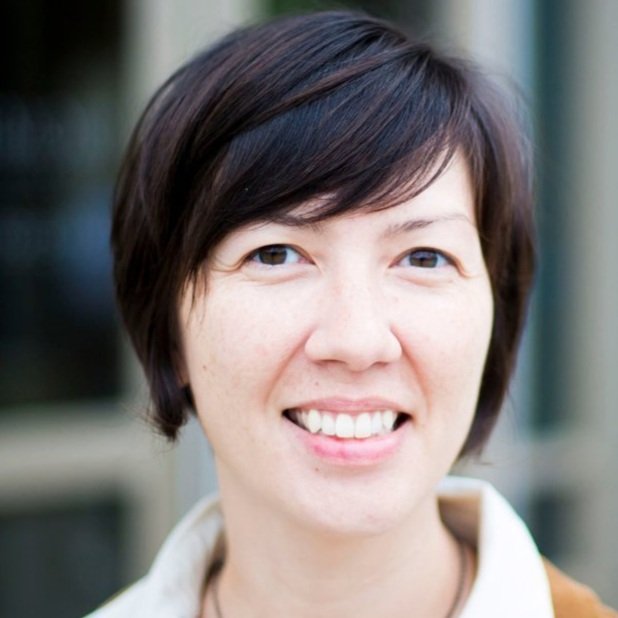Speakers & Agenda
BrainMind Special Forum: Neuromodulation + BCI + AI
Sunday and Monday, June 2nd - 3rd, 2024
DAY 1
Sunday, June 2nd, 2024
8:00 AM Breakfast, Experiential NeuroLab Opens
9:00 AM Welcome
9:20 AM Plenary Session

Ed Boyden is Y. Eva Tan Professor in Neurotechnology at MIT, an investigator of the Howard Hughes Medical Institute and the MIT McGovern Institute, and professor of Brain and Cognitive Sciences, Media Arts and Sciences, and Biological Engineering at MIT. He leads the Synthetic Neurobiology Group, which develops tools for analyzing and repairing complex biological systems, such as the brain, and applies them systematically to reveal ground truth principles of biological function and to repair these systems. These inventions include optogenetic tools, which enable control of neural activity with light; expansion microscopy, which enables ordinary microscopes to do nanoimaging; new tools for high-speed imaging of living biological signals and networks; noninvasive brain stimulation strategies that may help with conditions ranging from Alzheimer's to blindness; and new strategies for inexpensively creating 3-D nanotechnology. He co-directs the MIT Center for Neurobiological Engineering and the MIT K. Lisa Yang Center for Bionics, and is a faculty member of the MIT Center for Environmental Health Sciences, Computational & Systems Biology Initiative, and Koch Institute. Amongst other recognitions, he has received the Wilhelm Exner Medal (2020), the Croonian Medal (2019), the Lennart Nilsson Award (2019), the Warren Alpert Foundation Prize (2019), the Rumford Prize (2019), the Canada Gairdner International Award (2018), the Breakthrough Prize in Life Sciences (2016), the BBVA Foundation Frontiers of Knowledge Award (2015), the Carnegie Prize in Mind and Brain Sciences (2015), the Jacob Heskel Gabbay Award (2013), the Grete Lundbeck Brain Prize (2013), the NIH Director's Pioneer Award (2013), and the Perl/UNC Neuroscience Prize (2011). He was named to the World Economic Forum Young Scientist list (2013) and the Technology Review World’s "Top 35 Innovators under Age 35" list (2006), and is an elected member of the National Academy of Sciences (2019), the American Academy of Arts and Sciences (2017), the National Academy of Inventors (2017), and the American Institute for Medical and Biological Engineering (2018). His group has hosted hundreds of visitors to learn how to use new biotechnologies, and he also regularly teaches at summer courses and workshops in neuroscience, and delivers lectures to the broader public (e.g., TED (2011), TED Summit (2016), World Economic Forum (2012, 2013, 2016)).
Ed Boyden, MIT
Computational and Neural Modeling for Mindfulness

Maryam M. Shanechi is Dean’s Professor in Electrical and Computer Engineering, Computer Science, Biomedical Engineering, and Neuroscience Graduate Program at the University of Southern California (USC). She is also Founding Director of the newly established USC Center for Neurotechnology. She received her B.A.Sc. degree in Engineering Science from the University of Toronto, her S.M. and Ph.D. degrees in Electrical Engineering and Computer Science from MIT, and her postdoctoral training in Neural Engineering and Neuroscience at Harvard Medical School and UC Berkeley. She conducts research at the intersection of engineering, computation, and neuroscience to develop closed-loop neurotechnology and study the brain through decoding and control of neural dynamics. She is the recipient of several awards including the NIH Director’s New Innovator Award, NSF CAREER Award, ONR Young Investigator Award, ASEE’s Curtis W. McGraw Research Award, MIT Technology Review’s Top 35 Innovators Under 35, Popular Science Brilliant 10, Science News SN10, One Mind Rising Star Award, and a DoD Multidisciplinary University Research Initiative (MURI) Award. She was named a 2023 Blavatnik National Awards Finalist and is a Fellow of the IEEE.
Maryam Shanechi, USC
Machine Learning, Statistical Inference, Signal Processing

Amy Baxter is an esteemed academic physician entrepreneur renowned for her innovative work in pain management and medical technology. As CEO and CMO of Pain Care Labs, she leads the development of groundbreaking thermomechanical neuromodulatory pain relievers like VibraCool and Buzzy, which address critical aspects of the opioid crisis and vaccine nonadherence. With NIH-funded research spanning opioid prevention devices to needle phobia, Amy has been at the forefront of medical innovation. Recognized globally for her contributions, she continues to advocate for patient-centric approaches and remains dedicated to revolutionizing pain management and healthcare as a whole.
Amy Baxter, Pain Care Labs
Neuromodulation for Pain Mangement, Device Design

Dr. Williams is an Associate Professor within the Department of Psychiatry and Behavioral Sciences and the Director of the Stanford Brain Stimulation Lab. Dr. Williams has a broad background in clinical neuroscience and is triple board-certified in general neurology, general psychiatry, as well as behavioral neurology & neuropsychiatry. In addition, he has specific training and clinical expertise in the development of brain stimulation methodologies. Themes of his work include (a) examining the use of spaced learning theory in the application of neurostimulation techniques, (b) development and mechanistic understanding of rapid-acting antidepressants, and (c) identifying objective biomarkers that predict neuromodulation responses in treatment-resistant neuropsychiatric conditions. Dr. Williams' work has resulted in an FDA clearance for the world's first non-invasive, rapid-acting neuromodulation approach for treatment-resistant depression. He has published papers in high-impact peer-reviewed journals including Brain, American Journal of Psychiatry, and the Proceedings of the National Academy of Science. Results from his studies have gained widespread attention in journals such as Science and New England Journal of Medicine Journal Watch as well as in the popular press and have been featured in various news sources including Time, Smithsonian, and Newsweek. Dr. Williams received two NARSAD Young Investigator Awards in 2016 and 2018 along with the 2019 Gerald L. Klerman Award. Dr. Williams received the National Institute of Mental Health Biobehavioral Research Award for Innovative New Scientists in 2020.
Nolan Williams, Stanford
Functional Neuro-Imaging, Brain Stimulation for Psychiatric Disorders

Helen S. Mayberg, MD, is a neurologist renowned for her study of brain circuits in depression and for her pioneering deep brain stimulation research, which has been heralded as one of the first hypothesis-driven treatment strategies for a major mental illness. She is the founding Director of Mount Sinai Health System's The Nash Family Center for Advanced Circuit Therapeutics, a center which advances precision surgical treatments for neuropsychiatric disorders through the rapid conversion of neuroscience and neuroengineering innovations that correct brain circuit abnormalities to restore mood as well as motor and cognitive functioning. As a behavioral neurologist, Dr. Mayberg has established an international reputation for her pioneering research to map the brain circuits implicated in depression. Early in her career, she developed one of the first “network” models for mood disorders—incorporating fundamentals of neuroanatomy and brain connections with imaging technologies—to propose an alternative neurological view of this classical psychiatric condition that extended beyond the neurochemical models that had dominated for decades. Dr. Mayberg received an MD from the University of Southern California. She trained at the Neurological Institute of New York at Columbia University and was a post-doctoral fellow in nuclear medicine at Johns Hopkins Medicine. Immediately prior to joining Mount Sinai, Dr. Mayberg was Professor of Psychiatry, Neurology, and Radiology and held the inaugural Dorothy C. Fuqua Chair in Psychiatric Neuroimaging and Therapeutics at Emory University School of Medicine. She is a member of the National Academy of Medicine, The American Academy of Arts and Sciences and the National Academy of Inventors.
Helen Mayberg, Mount Sinai
Deep Brain Stimulation, Circuit-based Therapeutics, Precision Psychiatry

Dr. Hochberg’s research focuses on the development and testing of novel neurotechnologies to help people with paralysis and other neurologic disorders, and on understanding cortical neuronal ensemble activities. As IDE Sponsor-Investigator, Principal Investigator and lead Clinical Investigator of the pilot clinical trials of the BrainGate2 Neural Interface System, he has been honored with the Joseph Martin Prize in Basic Research, the Herbert Pardes Prize for Excellence in Clinical Research, and the Derek Denny-Brown Young Neurological Scholar Award. He is a Fellow of the American Academy of Neurology and the American Neurological Association, and has received grant awards from the Doris Duke Charitable Foundation, the ALS Association, the American Heart Association, the Department of Veterans Affairs, and the National Institutes of Health (NIDCD and BRAIN Intitiative/NINDS). Dr. Hochberg’s research has been published in leading journals such as Nature and the Journal of Neuroscience. He received his Sc.B. with Honors in Neural Science from Brown University in 1990. He received his M.D. and Ph.D. from Emory University in 1999, where he was continued an intern in Internal Medicine. He was a resident and Chief Resident in Neurology at MGH/BWH/Harvard Medical School, where he also completed a fellowship in Stroke/Neurocritical Care in 2004.
Leigh Hochberg, Brown University
Novel Neurotechnologies for Paralysis and Other Neurologic Disorders

Dr. Heather Berlin is a neuroscientist, clinical psychologist, and associate clinical professor of psychiatry and neuroscience at the Icahn School of Medicine at Mount Sinai in NY. She explores the neural basis of impulsive and compulsive psychiatric and neurological disorders with the aim of developing novel treatments. She is also interested in the brain basis of consciousness, dynamic unconscious processes, and creativity. Clinically, she specializes in lifespan (child, adolescent, and adult) treatment of anxiety, mood, and impulsive and compulsive disorders (e.g. OCD), blending her neural perspective with cognitive behavioral therapy, mindfulness, and humanistic approaches. Passionate about science communication, destigmatizing mental illness, and promoting women in STEM, Berlin is a committee member of the National Academy of Sciences’ Science and Entertainment Exchange and on the inaugural committee of the National Academies’ Eric and Wendy Schmidt Awards for Excellence in Science Communication. She has also served on the American Association for the Advancement of Science’s (AAAS) Committee on Science and Technology Engagement with the Public. She co-hosts StarTalk with Neil DeGrasse Tyson, and has hosted television series on PBS and the Discovery Channel. Dr. Berlin also co-wrote and starred in the critically acclaimed off-Broadway and Edinburgh Fringe Festival shows, Off the Top, about the neuroscience of improvisation, and Impulse Control, about the science of impulsivity. She has made numerous media appearances including on the BBC, History Channel, Netflix, National Geographic, and TEDx, and was featured in the documentary film Bill Nye: Science Guy.
Heather Berlin, Mount Sinai
Neural basis of Impulsivity and Compulsivity, Targeted Stimulation
12:45 PM Lunch with Speakers
1:45 PM Entrepreneur Spotlight
3:00 PM Breakout Discussion Tables (Concurrent Sessions)
4:15 PM Immersive Experience
5:00 PM Closing Remarks
5:15 PM Reception
6:00 PM Close
——————
7:00 PM Unconference-style Dinners (Guests sign up for these at registration)
DAY 2
Monday, June 3rd, 2024
8:00 AM Breakfast & Registration, Experiential NeuroLab Opens
9:00 AM Welcome and Musical Performance
9:20 AM Plenary Session

Polina Anikeeva received her BS in physics from St. Petersburg State Polytechnic University in 2003 and a PhD in materials science and engineering from MIT in 2009. She completed her postdoctoral training at Stanford University, where she created devices for optical stimulation and recording from brain circuits. She joined the MIT faculty in 2011. She serves as the director of the K. Lisa Yang Brain-Body Center at the McGovern Institute for Brain Research and is an associate director of the Research Laboratory of Electronics. Professor Polina Anikeeva’s group draws inspiration from neurobiology to create minimally invasive materials and devices to interface with the nervous system. Professor Anikeeva’s Bioelectronics Group develops multifunctional, multimaterial fibers that enable optical, electrical, and chemical interfaces with neurons in the brain, spinal cord, and peripheral organs. These fiber-based probes empower neuroscience research by permitting recording and manipulation of neural activity. Taking advantage of low conductivity and negligible permeability of biological matter to weak magnetic fields, the research group designs and synthesizes a range of magnetic nanomaterials capable of transducing remote magnetic signals to stimuli perceived by biological receptors. To date, magnetic nanomaterials have enabled magnetothermal, magnetomechanical, and chemomagnetic modulation of neurons in vivo. The technologies developed in the Bioelectronics Group are advancing the fundamental neuroscience of brain-organ communication and paving the way to minimally invasive treatments of neurological and psychiatric conditions.
Polina Anikeeva, MIT
Photonic and Magnetic Materials, Biomaterials

Reid is a Silicon Valley stalwart in the modern technology world.
An accomplished entrepreneur and executive, he played an integral role in building many of today’s leading consumer technology businesses, including LinkedIn and PayPal. As an investor, he has been instrumental in the success of iconic companies such as Facebook and Airbnb and has helped fast-growing startups like Aurora and Convoy get to scale.
Reid joined Greylock in 2009 and focuses on early-stage investing in products that can reach hundreds of millions of participants. His unique understanding of consumer behavior and a clear-eyed ability to guide startups from inception through ramped-up “blitzscaling” has made him one of the most sought-after advisors, partners, and investors today. Reid was a board observer for Airbnb and currently serves as a board director for Aurora, Blockstream, Coda, Entrepreneur First, Inflection, Joby Aviation, Microsoft, Nauto, and a few early-stage companies still in stealth.
Reid’s core focus is on businesses with network effects. In 2003, he co-founded LinkedIn, the world’s largest professional network that today has more than 700 million members and a diversified revenue model that includes subscriptions, advertising, and software licensing. Before LinkedIn, Reid served as executive vice president at PayPal, where he was a founding board member and responsible for all of the company’s external relationships.
Reid is a frequent public speaker, known for his approachability and skill at explaining complex topics with lucidity. He is the co-author of Blitzscaling and two New York Times best-selling books: The Start-up of You and The Alliance and Masters of Scale. He also hosts the podcast Masters of Scale.
A California native, Reid spent most of his life in the Bay Area. He earned a B.S. with distinction in symbolic systems from Stanford University and then earned a master’s degree in philosophy from Oxford University. He has honorary doctorate degrees from Babson University and the University of Oulu.
Beyond startups and technology, Reid has a wide range of interests, including politics, board games, science fiction, philosophy, and philanthropy. He serves on several not-for-profit boards, including Kiva, Endeavor, CZI Biohub, the Berggruen Institute, New America, the Stanford Institute for Human-Centered AI, and the MacArthur Foundation’s Lever for Change. Reid has received various awards for his philanthropic work, including an honorary CBE from the Queen of England and the Salute to Greatness Award from the Martin Luther King Center.
His foundational thesis of the power of networks extends beyond marketplaces and social ecosystems. Recently, it has led to his investments in sectors including autonomous transportation, cryptocurrency, and shipping logistics.
Reid Hoffman, Greylock
Future of AI, Scaling Social Impact

Michael McCullough, M.D., M.Sc. is the Founder of BrainMind. He is an EIR at Greylock Partners, impact investor and Partner at Capricorn Healthcare, social entrepreneur, and emergency room professor at UCSF. Michael’s personal interest in the brain extends from a childhood brain hemorrhage which resulted in hydrocephalus and a severe stutter, partially corrected by brain surgery at age 10 and requiring Michael to retrain himself to speak through high school and early college at Stanford. Accomplishing fluent speech also required extensive biofeedback and meditation practice. After returning from Oxford as a Rhodes Scholar, Michael co-founded QuestBridge during free hours in medical school at UCSF and his surgical residency at Stanford. QuestBridge, a national non-profit, now places more talented low-income students into top colleges like Stanford, Yale, Caltech, and MIT than all other non-profits combined. Michael has since founded or co-founded 12 successful companies and non-profits.
Michael is a founder of RegenMed Systems, a co-founding investor of HeartFlow, and on the founding board of 2U -- all top performing impact investments. Michael also served/serves on the boards of the Metabiota, the Global Leadership Incubator, QuestBridge, and the Dalai Lama Foundation among others, and serves as an on-call ER physician for the Dalai Lama during his visits to the West Coast.
Michael McCullough, BrainMind
BrainMind Today and Beyond

Karen Rommelfanger is the program director of the Neuroethics Program at the Ethics Center and is an associate professor in the Departments of Neurology and Psychiatry at Emory. Dr. Rommelfanger received her PhD in neuroscience from Emory University. She is also the senior associate editor for the American Journal of Bioethics Neuroscience and board member of the International Neuroethics Society. Rommelfanger also serves as a member of the BRAIN Initiative's Neuroethics Working Group and on the advisory council to the director of NIH for BRAIN 2025. In her recent international work, she is co-chair of the International Brain Initiative's Neuroethics Workgroup and is a member of the Global Futures Council on neurotechnology for the World Economic Forum.
One area of her current research explores the nature and utility of placebo using psychogenic movement disorders as a therapeutic model. Another area includes brain-machine interfaces (such as deep-brain stimulation or brain-to-brain interface). An overarching theme in her work is the exploration of how evolving neuroscience and neurotechnologies challenge societal definitions of disease and medicine with a focus on predictive technologies. She is also engaged in research in cross-cultural neuroethics. To that end, she is leading the Global Neuroethics Summit series convening of all national-level brain projects around the globe to engage in neuroethics collaboration and discourse; she also serves as the US BRAIN Neuroethics Division ambassador to the Human Brain Project's Ethics Advisory Board, a member of the China-India Mental Health Alliance, and a board member of the International Neuroethics Society.
Dr. Rommelfanger has been a neuroscience researcher for more than 10 years and her work has been published in high-impact, peer-reviewed journals such as the Proceedings of the National Academy of Sciences and the Journal of Neuroscience; her research on Parkinson's Disease has been featured in the popular media, including Scientific American. She has presented her work at both international and national conferences and has worked in prestigious laboratories in the US and Japan using a broad array of neurotechnologies from brain imaging and behavioral techniques to electrophysiological recording of individual brain cells.
She regularly gives neuroethics talks at both universities and for general audiences; her neuroethics work has been published in top neuroethics journals and in Nature Reviews Neurology and Neuron. Rommelfanger maintains and writes for The Neuroethics Blog at Emory. Her public scholarship has been featured in The Huffington Post, The Chronicle of Higher Education, and Nature blogs and she has been quoted in popular media outlets such as The New York Times and USA Today. Rommelfanger also founded NEW (NeuroEthicsWomen) Leaders, an organization that aims to cultivate professional development and scholarly networks for women and under-represented groups in neuroethics. She believes that neuroethics training gives neuroscientists a creative edge and that neuroethics discussions are critical for academics and general audiences alike in order to ensure maximal benefit of neuroscience discoveries for society.
Karen Rommelfanger, Emory University
Neuroethics for Future Neurotechnologies, Predictive Technologies

Elena Koustova, PhD, MBA, is currently leading a team of superheroes focused on delivering the technical solutions to the opioid crisis at the National Institute on Drug Abuse (NIDA) at the NIH. She coordinates NIDA’s multimillion small business programs, establishes the strategic partnerships in areas of product development, entrepreneurship, translational research, innovation and technology transfer, and manages NIDA’s Challenge program through the prize authority. NIDA’s support resulted in creating the thriving community of entrepreneurs engaged in development of diagnostic and therapeutic medical devices, including diagnostic tests and digital health technologies to help combat the opioid crisis and achieve the goal of preventing and treating substance use disorders.
Elena Koustova, NIH/NIDA
Government Granting to For-Profit Companies, Translational Research

Paul Sajda is Professor of Biomedical Engineering, Electrical Engineering and Radiology (Physics) at Columbia University. He is also a Member of Columbia’s Data Science Institute. Sajda is interested in what happens in our brains when we make a rapid decision and, conversely, what processes and representations in our brains drive our underlying preferences and choices, particularly when we are under time pressure. His work in understanding the basic principles of rapid decision-making in the human brain relies on measuring human subject behavior simultaneously with cognitive and physiological state. Important in his approach is his use of machine learning and data analytics to fuse these measurements for predicting behavior and infer brain responses to stimuli. Sajda applies the basic principles he uncovers to construct real-time brain-computer interfaces that are aimed at improving interactions between humans and machines. He is also applying his methodology to understand how deficits in rapid decision-making may underlie and be diagnostic of many types of psychiatric diseases and mental illnesses. Of particular interest to Sajda is how different areas in the human brain interact to change our arousal state and modulate our decision-making. Specifically he is using simultaneous EEG and fMRI together with pupillometry to identify and track spatiotemporal interactions between the anterior cingulate cortex, dorsolateral prefrontal cortex, and subcortical nuclei such as the locus coeruleus. He has found that the dynamics of these interactions are altered under stress, particularly when dealing with high-pressure decisions with critical performance boundaries. These findings are being transitioned to applications ranging from to tracking pilot cognitive state while operating fighter aircraft to identifying biomarkers of healthy thought patterns in patients being treated for major depressive disorder and/or complicated grief. Sajda is a co-founder of several neurotechnology companies and works closely with a range of scientists and engineers, including neuroscientists, psychologists, computer scientists, and clinicians.
Paul Sajda, Columbia University
Machine Learning, Arousal States, Decision Making
12:45 PM Lunch with Speakers
2:00 PM Immersive Experience
2:30 PM Breakout Discussion Tables (Concurrent Sessions)
4:00 PM Fireside Chat
5:00 PM Closing Reception
6:00 PM Close

